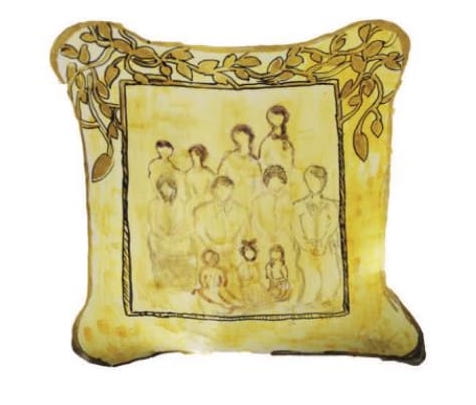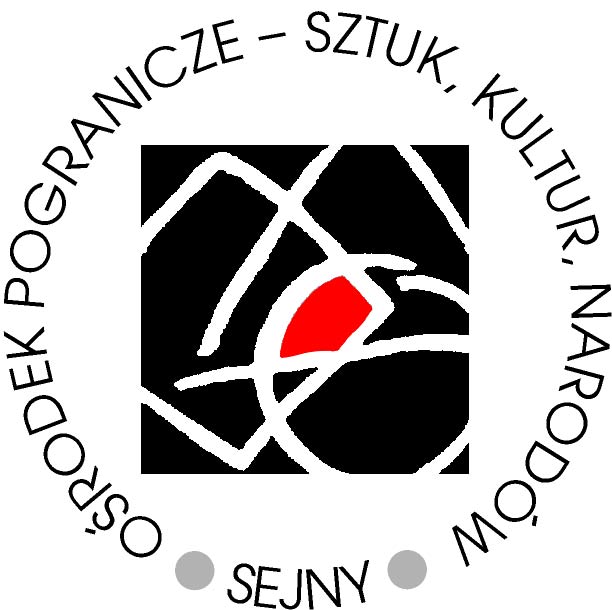About Borderland School

Borderland School. An interview with Weronika Czyżewska-Poncyljusz. How was the Borderland School established? The two-year cycle of meetings held in 2013-2014 was preceded by many different earlier events.
Some of them were carried out under the title of Borderland Schools and were connected with study visits to multicultural regions and cities of Central and Eastern Europe and the Balkans. It was similar in its design to the Glass Bead Game program which was implemented in the past decade in different parts of Europe, and was based on a series of comprehensive educational and artistic activities to train cultural activists working in local environments.
The 2013-2014 edition of the Borderland School was based on those experiences and was directed at the countries of the Eastern Partnership. Thanks to the support of our sponsor, the Solidarity Fund, we were able to afford not only very extensive forms of workshops and meetings, but also a system of small grants that is financing the projects by the participants of the School.
Tell us a bit about the ideological background of the Borderland School.
Its idea is deeply rooted in our cultural work that combines education and art. It refers to the idea of building bridges, which requires solid craftsmanship. It has been based on the exchange of experiences in the practical sense, but also in the sphere of reflection. Krasnogruda has also played an important role here as a laboratory of practice and a place where ideas have been exchanged. Looking at the daily work of the entire Borderland team, observation of the work of all the studios working here and participation in the workshops with international experts, was to inspire the participants' further work in their own communities. At the same time, their experiences have turned out also a fascinating exchange. You can say that this exchange was very multidirectional.
What did the schedule of the program look like?
The first stage was the summer school in Krasnogruda in August 2013. It was attended by 32 social activists, activists, cultural leaders, teachers, journalists and artists from Belarus, Ukraine, Georgia and Poland. We prepared for them an intensive schedule of lectures, presentations, meetings and artistic events. They listened to the lectures by the historians Timothy Snyder and Marci Shore. The thematic workshops were conducted by international experts who performed the role of the grant jury: Chris Keulemans, Willemijn Lamp, Anna Danilewicz, Jean Pierre Deru and Krzysztof Czyżewski. The workshops concerned the most important issues related to the specific project activities of the participants. They were designed to transfer the content related to the idea of educational work into the local community, and to show the use of tools offered by art and cultural animation for building spaces of meetings, and making cultural activities an integral part of the life of multicultural communities. Together with Agnieszka Podpora, we prepared our classes devoted to formal issues and to ensure sustainability and continuation of project activities, which are also important in a long-term program perspective. The entire project was documented by Brendan Jackson, there was also a blog recording the whole project and used as a communication platform during its implementation. www.borderlandschool.net,
Then, in the autumn and winter of 2013, the invited by us project leaders were already able to work in their own countries, with their own teams. Masters and experts together with Agnieszka Podpora and me went to Minsk, Lviv and Tibilisi where during study visits we could observe the effects of the so far accomplished work and run further workshops. It was a time for the participants to show their presentations, and take part in meetings that developed their ideas and theoretical knowledge.
At the beginning of 2014, the grant competition was announced, which, at the end of April, allowed to select the awarded projects. The teams that were awarded small grants visited Krasnogruda again in May 2014 to refine their projects. They met again with experts during workshops and individual consultations. Willemijn Lamp drew then our attention to the immense value of the Borderland School, the fact that the participants not only benefited from meetings with mentors but also inspired each other.
Between June and September 2014, the formed teams carried out the final events of their projects in their respective countries, which they then summed up once again coming to Krasnogruda.
What were the awarded projects like?
In Lviv, the Iota Association organized the First Neighborhood Festival in Podzamcze, a series of activities in a neglected urban area, addressed to its inhabitants and other interested inhabitants of Lviv. The project included integratory workshops for youth and senior citizens, film screenings combined with discussions. They jointly prepared the final music evening accompanied by workshops run by the locals for the locals.
The Pryzba Festival, the initiative of Krylya Halopa Theater from Brest, Belarus, combined educational and artistic activities and was directed at artists, social activists, journalists and intellectuals, and local communities from Brest and other regions of Belarus. It was preceded by a three-month workshop with local youth. In this way, they realized the postulate of involvement of art in integration and educational processes in the local environment, meant to overcome the civic atomization and passivity in Belarus.
The project "Visual storytelling: Tbilisi migrant stories" was implemented by the Georgian GeoAir organization operating on the boundaries of art and social action. It was their first program directed at youth. The aim of the artistic and education activities for young people was to learn about the culture of some immigrant communities and engage the local community in educational and intercultural dialogue. Under the guidance of visual artists and animators, the young people prepared five short films – photo and text montages.
Dzestra Talks was a project implemented in Chernivtsi. It was a series of lectures and discussions in the public spaces of the city. The lecturers of this "street university" were representatives of the governmental bodies and NGOs who in a creative and innovative way contributed to the mobilization of the civil society in Ukraine. The topics of lectures and discussions related to cultural management, human rights, media management, civic initiatives, socially responsible business and non-formal education.
What was your main focus when awarding the small grants?
Already at the stage of writing of the projects by the participants, we saw that many of them had an enormous potential. We worked on them for over a year and a half, and many of them acquired financial support even without our co-funding. It was an additional, conscious effect of our efforts. Our decision to award grants focused on the initiatives that would not otherwise have the potential to raise any funding from other sources. In addition, we wanted to appreciate the teams that had the chance to transform into an organization, providing them with a start-up capital.
Were they successful? What were the further fates of the awarded projects?
In retrospect, we very highly estimate the choices we made then. Many of these organizations operate to this day. The educational and artistic centre established in Belarusian Brest, and the project they did with us opened them to the local context. The Iota Association in Ukraine, linked to the university and cultural studies, is still active implementing new projects, not only those related to Podzamcze. The Georgian visual artists already had already had their institution established when they contacted us, but with the support of the Borderland School, they expanded their profile, opening up to work to working with local youth.
Many of these people are still come back to us, implementing smaller projects with us.
Have they shared with you their feedback on what the Borderland School meant for them?
Yes, many participants of the Borderland School have also benefited in a personal sense, their participation in the program has enriched them with an interesting international experience that they now use abroad. Very often, they have told us that although they had previously benefited from training in managerial competencies or democratic values, the experience of deep cooperation with the local community was a new and groundbreaking experience for them. Nobody gave them any ready-made solutions because there are simply no such things, as all depends on the context of the place where you work. We emphasized not only individual projects, but also long-term work in the local environment, asking them to imagine their relationship with the beneficiaries on the completion of their projects. Many of them reported that the Borderland School was the first place that prompted them to reflect on this kind of activity. In a sense, we participated in a transformation, in the process of their maturation as activists and animators of culture. We showed them that it is a job that is very demanding from the very beginning, that before building a place of practice you need to build a community around it. The very process of its birth or coming together of people who face similar goals and challenges is of great value.
Are you planning on next editions?
For me, the Borderland School has been a time of hard work and a fantastic adventure. I would definitely like to repeat it. However, in order to be able to realize it again in such an advanced form, supplying new participants with not only theoretical and practical knowledge but also with funds for the realization of their own projects, we would need a generous sponsor. We hope we can find one.
I wish you good luck and thank you so much for the interview.
Marta Kowerko-Urbańczyk
More about the project in the blog: http://borderlandschool.net/








